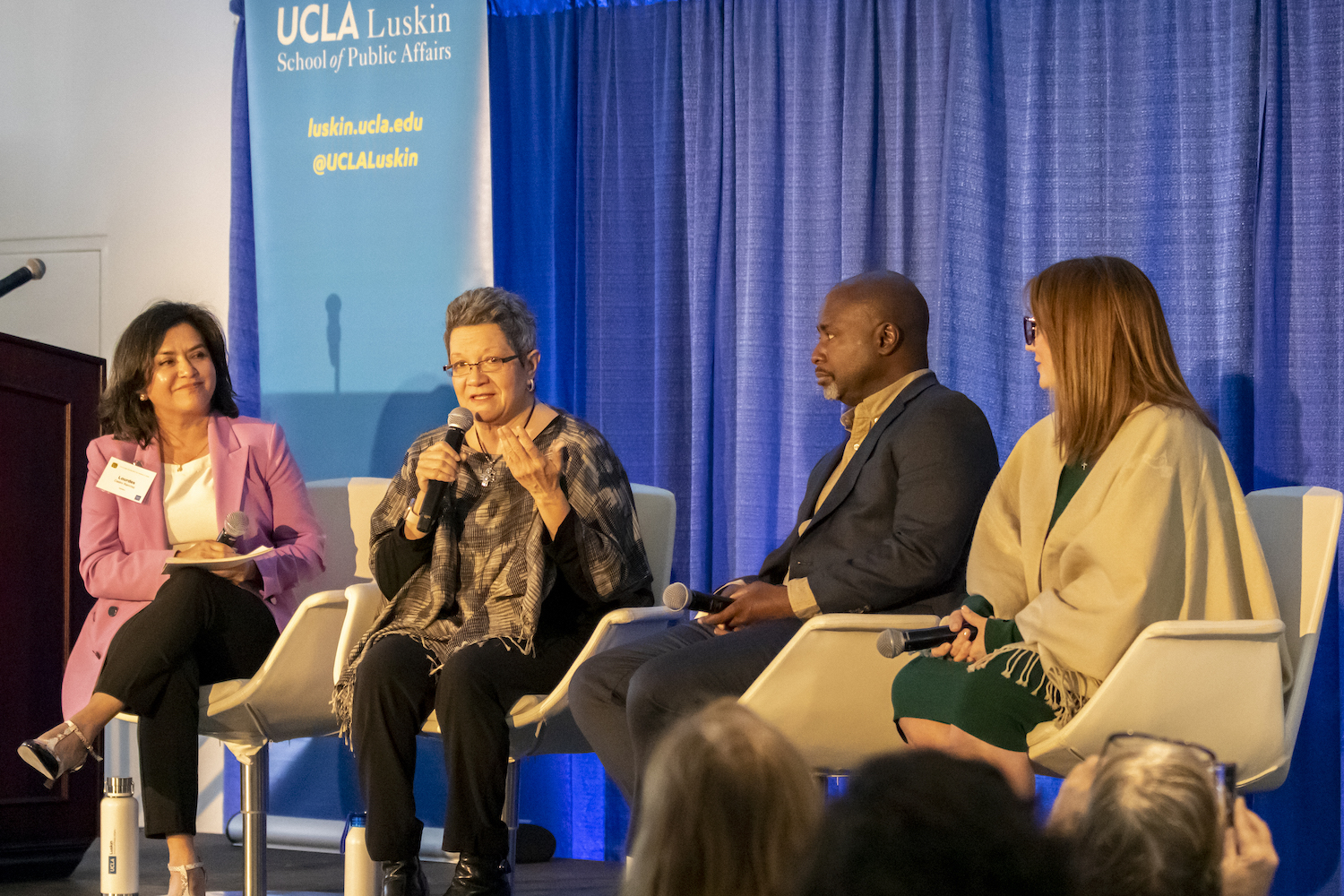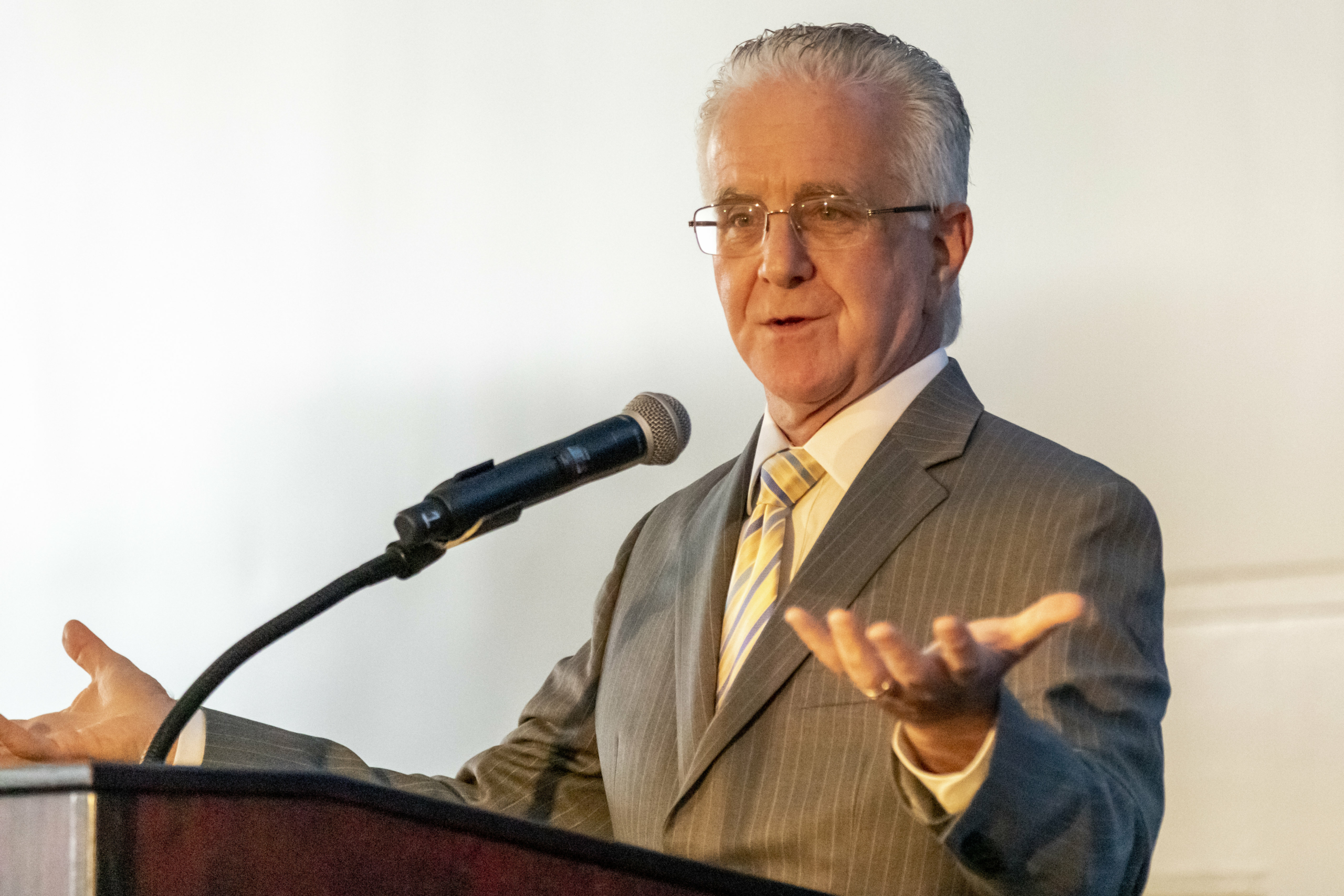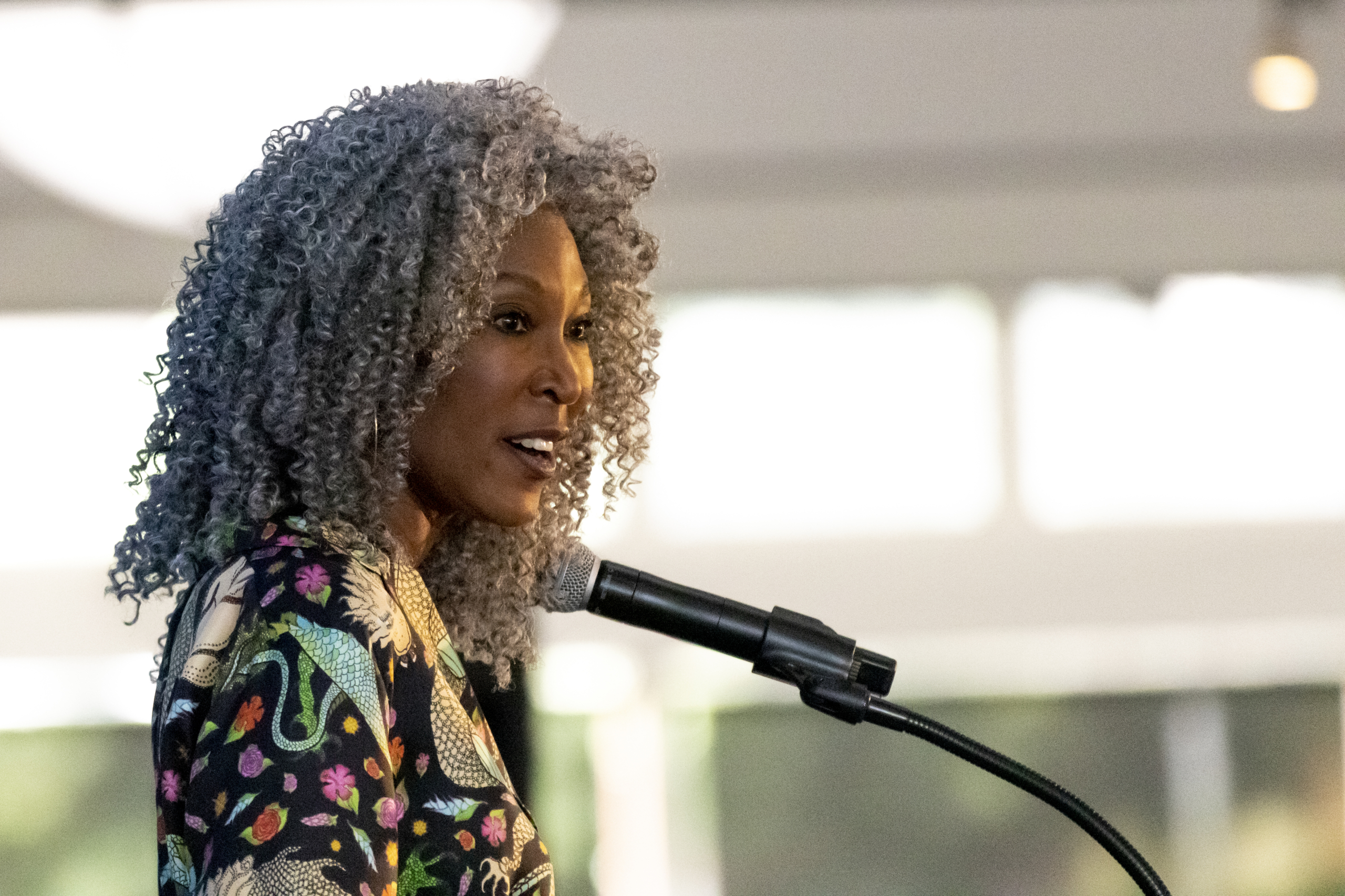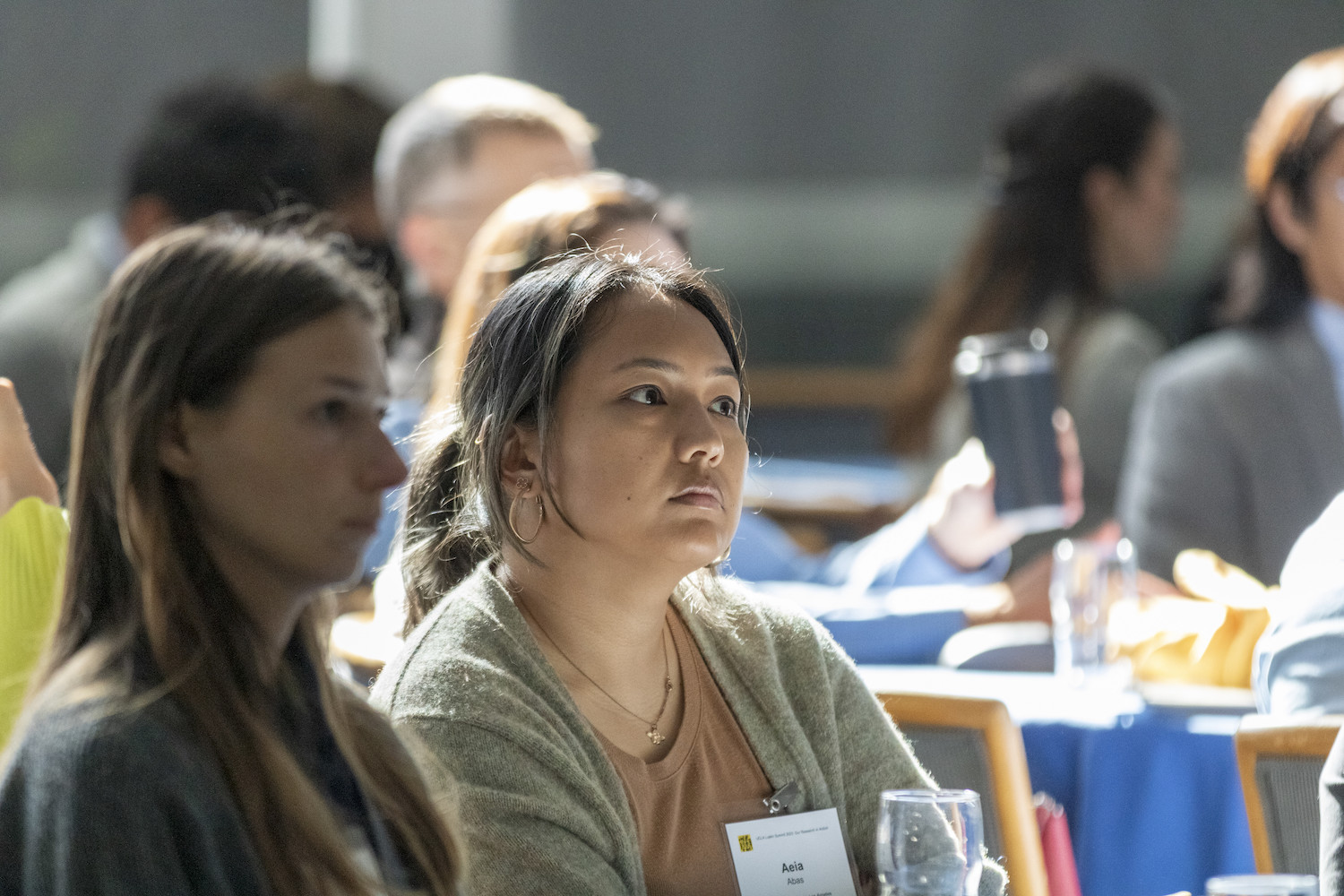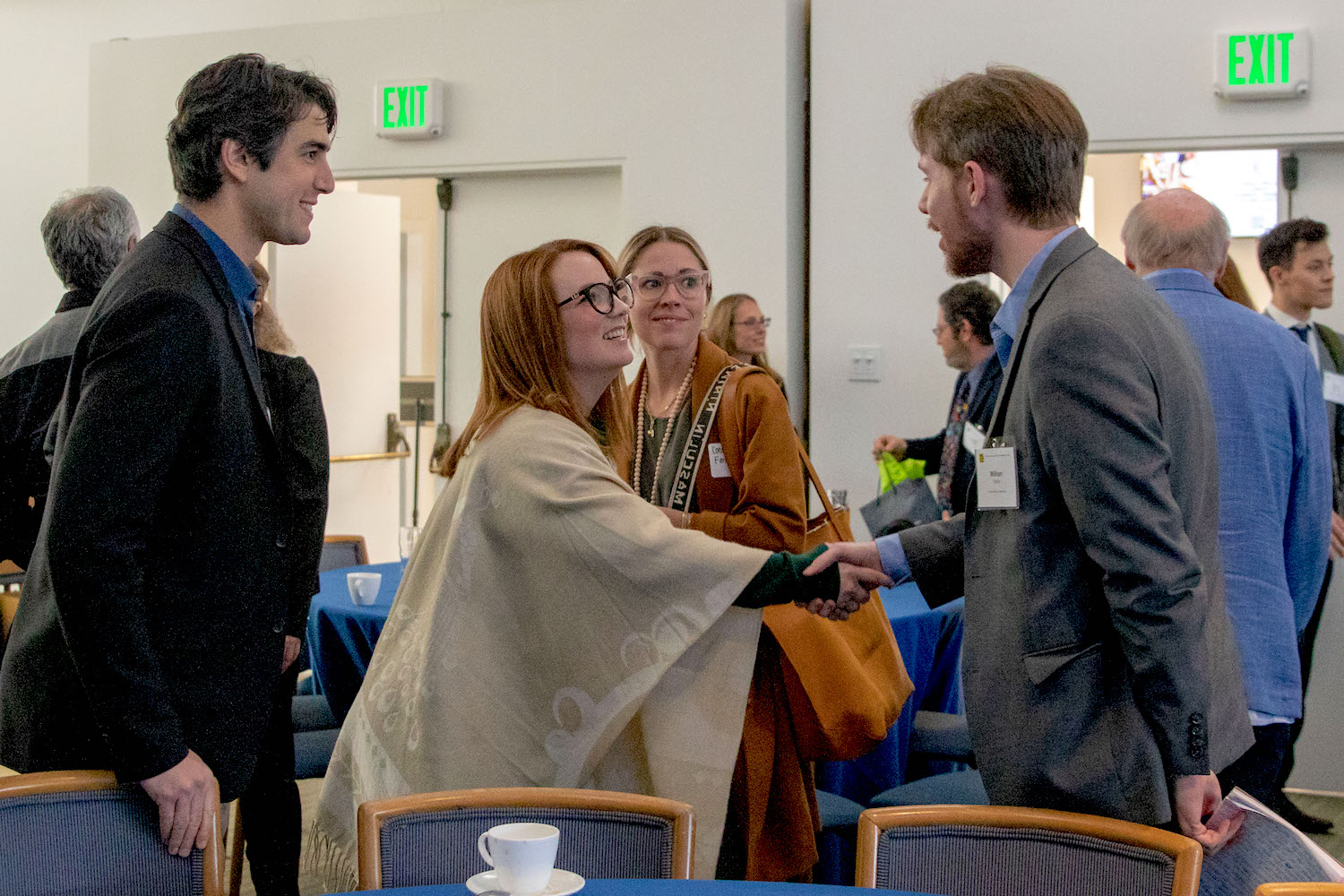By Mary Braswell
A search for solutions to Southern California’s most urgent problems brought top researchers together with government and civic leaders at the fifth annual UCLA Luskin Summit.
Los Angeles City Council President Paul Krekorian gave the keynote address at the April 19 gathering, attended by more than 200 scholars, students and community members seeking to learn more about how the region is responding to homelessness, climate change, racial disparities, voting rights violations and more.
Krekorian spoke about the state of governance at L.A. City Hall, acknowledging that citizens’ faith has been shaken by corruption cases, politicized redistricting and the release of a racist recording that led to high-profile resignations. But he added that the upheaval has opened the door to a period of change.
“The kind of city hall that the people of Los Angeles deserve [is] a city hall that’s more ethical, more transparent, more trustworthy, more urgent, more collaborative and hopefully much more effective,” Krekorian said.
He laid out a roadmap that includes a top-to-bottom charter review that could add more seats on the City Council, change who decides land-use issues to reduce incentives for corruption, and take the power of setting district boundaries away from elected officials.
“Together, we’re turning the page on a very dark time and we’re beginning the work of rewriting the next chapter of Los Angeles history,” Krekorian said.
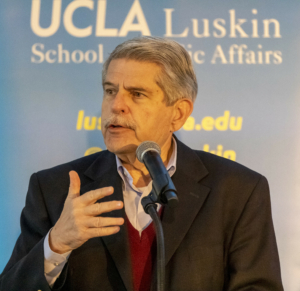
Zev Yaroslavsky, who oversees the annual UCLA Quality of Life Index, reports on this year’s findings. Photo by Les Dunseith
The Luskin Summit, held in person at the UCLA Faculty Club after three years of remote and hybrid convenings, continued its tradition of spotlighting the UCLA Quality of Life Index (QLI), a wide-ranging survey of Los Angeles County residents.
This year’s QLI revealed deep dissatisfaction with many aspects of life in L.A., a sign of the region’s slow emergence from the dual shocks of the COVID-19 pandemic and soaring inflation, said Zev Yaroslavsky, who oversees the survey as director of the Los Angeles Initiative at UCLA Luskin.
In conversation with ABC7 News reporter Josh Haskell, the emcee of this year’s Luskin Summit, Yaroslavsky said the high cost of housing continues to sow anxiety, with 28% of respondents saying they worry about losing their home and becoming homeless as a result.
“Now, let me put this in more stark terms than just percentages,” Yaroslavsky said. “The county’s population is a little over 10 million people, so 28% means that there are 2.8 million people in this county who are going to bed every night worried about whether they’re going to lose their home. Think about it that way. That’s a lot of people. That’s a lot of stress.”
The region’s housing emergency also took center stage at a plenary session that illustrated a hallmark of the Luskin Summit: the participation of key elected and appointed officials in a position to turn social science research into policies for change.
Lourdes Castro Ramírez, secretary of California’s Business, Consumer Services and Housing Agency, moderated the dialogue with L.A. County Supervisor Lindsey Horvath, L.A. City Council member Marqueece Harris-Dawson and the city’s chief of housing and homelessness solutions, Mercedes Márquez.
The conversation emphasized a new push to coordinate efforts by a multitude of agencies to relieve California’s housing emergency.
“A challenge of this magnitude requires all levels of government to work together, and that’s exactly what we have been doing over the last two years, working very closely with our federal partners, working very closely across the state agency and department, and working in a unified and coordinated manner with local cities, counties, continuums of care and folks on the ground that are doing this work every single day,” said Castro Ramírez, a UCLA Luskin Urban Planning alumna who oversees 11 state departments and boards.
With the end of pandemic-era eviction moratoriums, Horvath said her office is working with cities to implement new protections for both renters and mom-and-pop landlords, with the aim of keeping residents in their homes.
“We have no time to waste,” she said. “We’re not going to wait until every detail is perfect. People are dying on our streets and we have to do something.”
The panelists credited newly elected Los Angeles Mayor Karen Bass for jumpstarting efforts to shelter the homeless, including the appointment of Márquez to cut the red tape that has delayed the construction and acquisition of desperately needed housing.
“We have identified 360 projects that are 100% affordable. That’s over 8,000 units that are now on a fast track,” Márquez said, adding that her team is also reviewing government-owned land including Metropolitan Transit Authority car lots that could be converted to residential development.
Harris-Dawson, whose district includes South Los Angeles, said housing strategies must be guided by a sense of equity to prevent poverty from becoming concentrated in pockets of the city.
“The commitment has to be both to build and build fast, but also to build where it’s difficult to build,” he said. That includes parts of the city where the prevailing attitude is “ ‘send all the poor people over there, build housing over there and build it as dense as you need to, but keep them over there’ — as if poverty is a communicable disease and living near it damages your quality of life somehow.”
The Summit also featured a series of breakout sessions where scholars, officials and advocates zeroed in on critical issues. They included representatives from UCLA Luskin research centers, including the Luskin Center for Innovation and its Human Rights to Water Solutions Lab, the Lewis Center for Regional Policy Studies, the UCLA Institute of Transportation Studies and the UCLA Voting Rights Project. The sessions explored:
- vehicular homelessness, the unique circumstances of those who must shelter in their cars;
- persistent disparities based on race and ethnicity in the mortgage industry;
- how to build popular support and political momentum for investments in climate infrastructure;
- whether California’s plan to transition to zero-emission vehicles is sufficient to meet climate goals;
- the uncertain future of voting rights pending decisions by the U.S. Supreme Court;
- and the activation of far-reaching programs to bolster the region’s water supply.
Following the Summit, several participants gathered for a lunch presentation on equity and clean energy that included UCLA experts and representatives from the Los Angeles Department of Water and Power, the lead sponsor of this year’s Luskin Summit. Other sponsors include Bank of America, the Weingart Foundation, David Bohnett Foundation, California Community Foundation and California Wellness Foundation. The media partner is ABC7.
View photos from the 2023 UCLA Luskin Summit on Flickr.

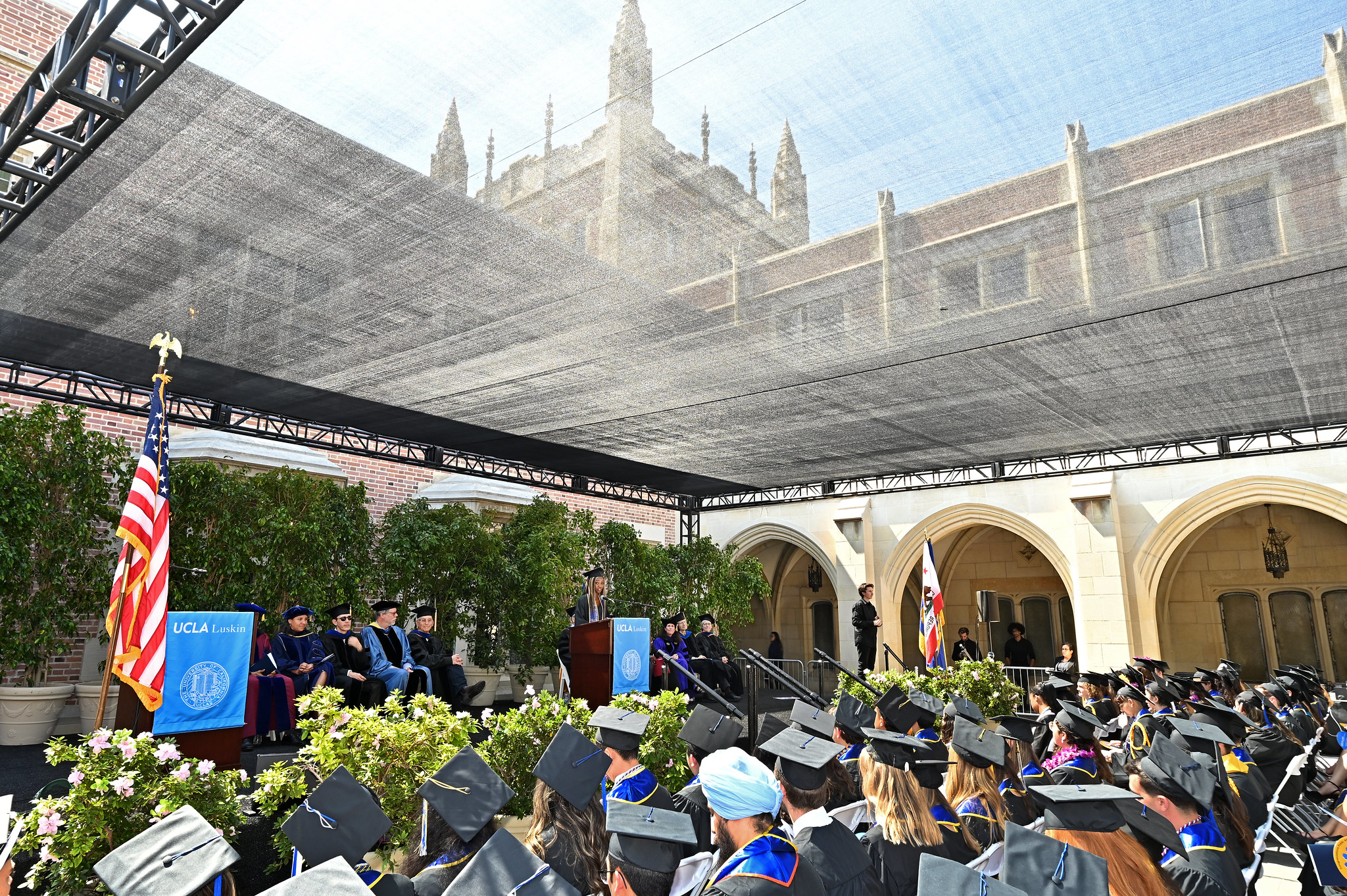
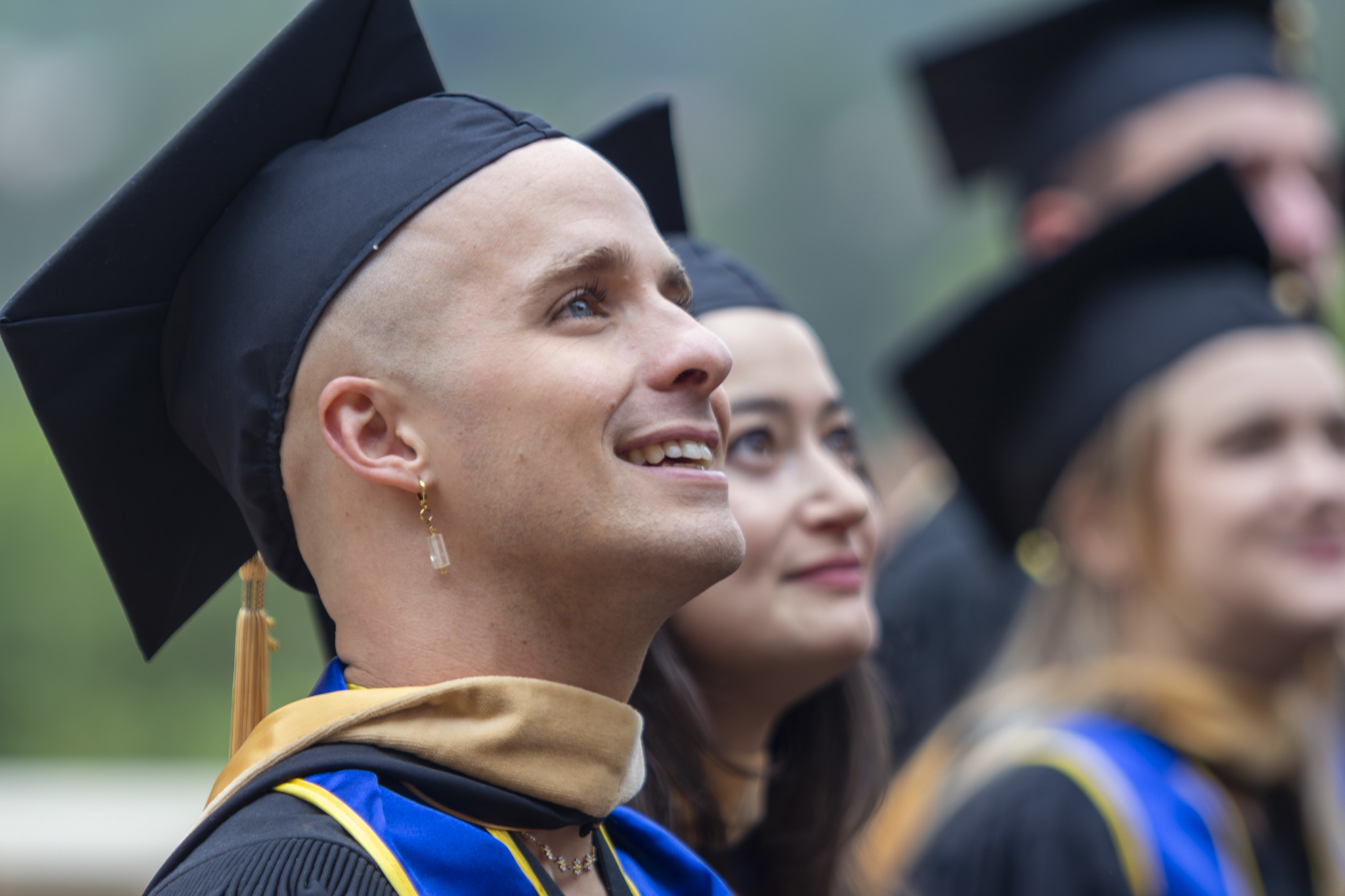
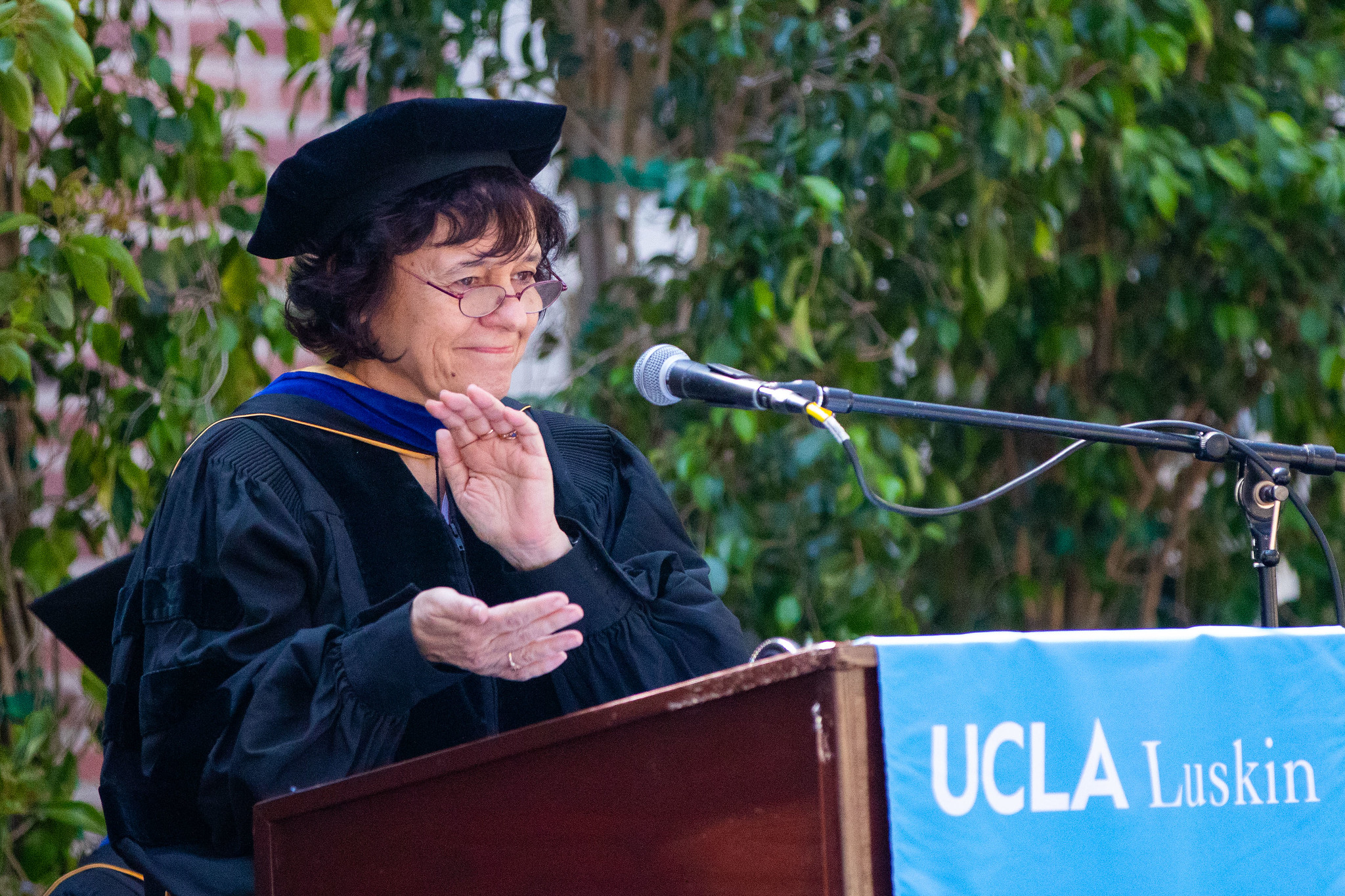
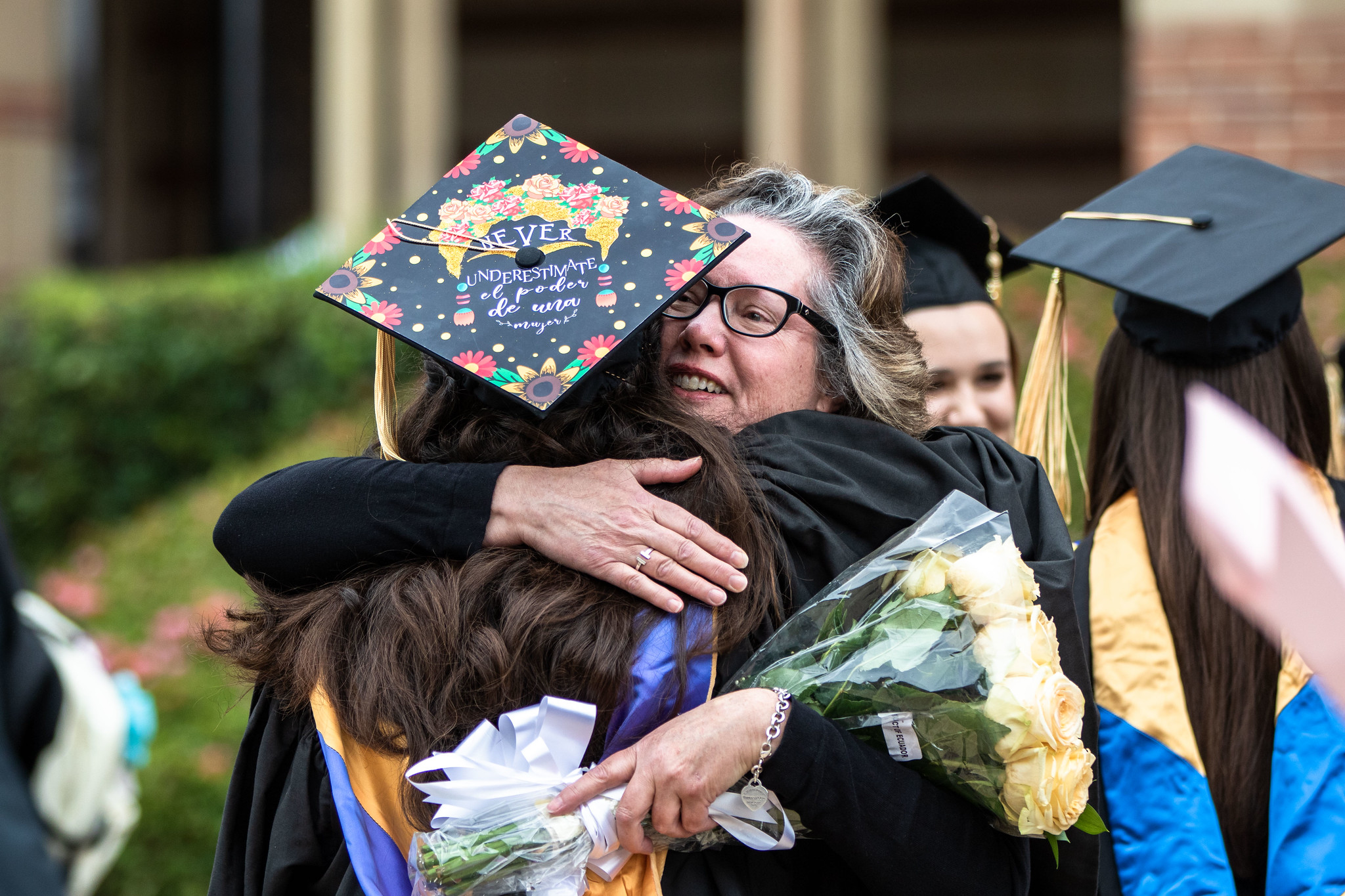
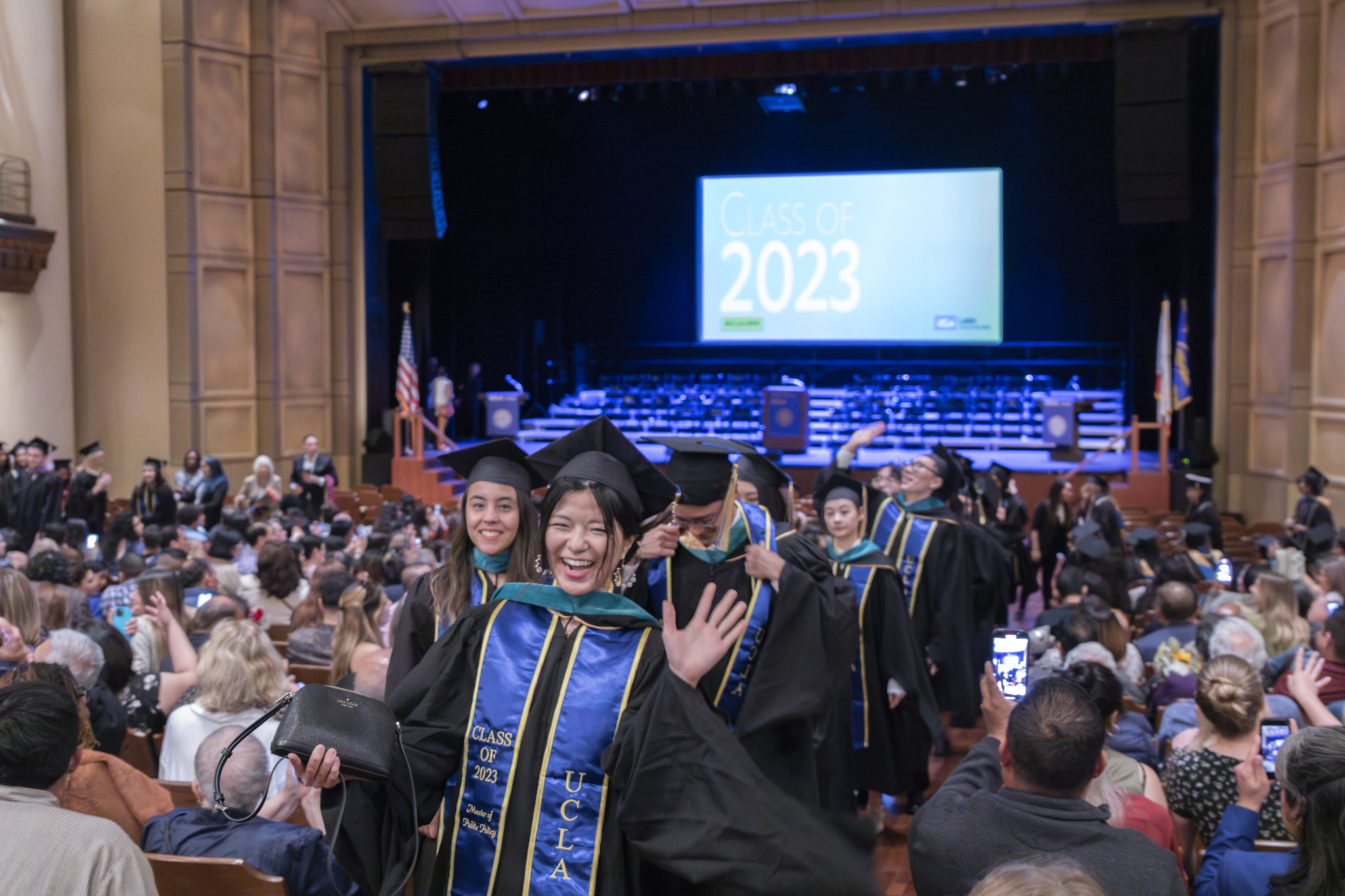
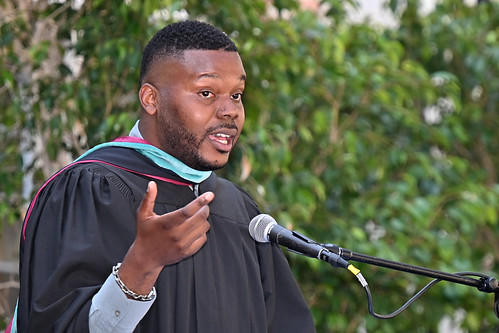

 Alumni, faculty, staff and friends from across the decades joined current students at the gala event at the UCLA Luskin Conference Center, the culmination of a
Alumni, faculty, staff and friends from across the decades joined current students at the gala event at the UCLA Luskin Conference Center, the culmination of a 

